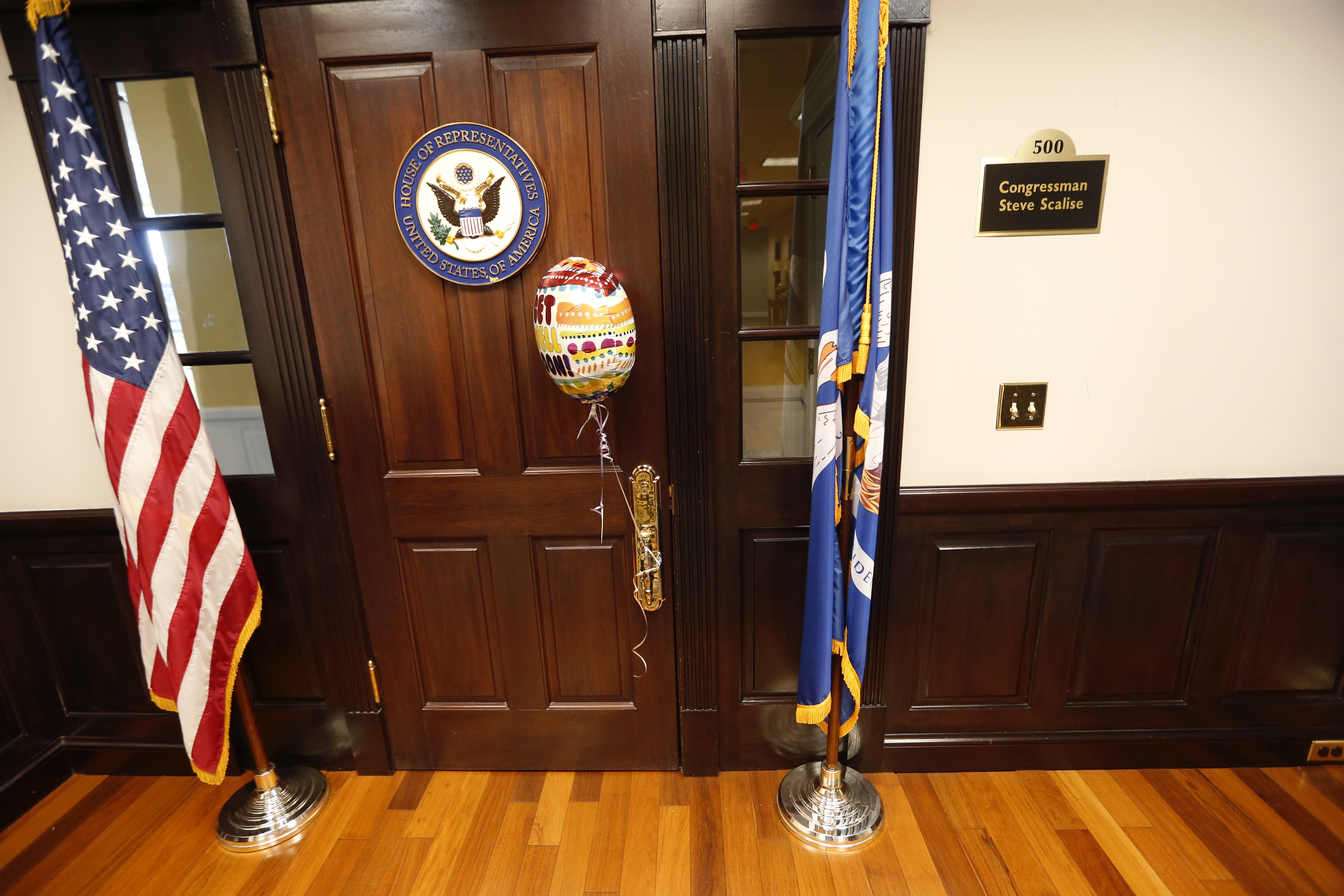The perils of reflexively politicizing tragedy
On The New York Times' galling faceplant


A free daily email with the biggest news stories of the day – and the best features from TheWeek.com
You are now subscribed
Your newsletter sign-up was successful
The frightening shooting at a congressional baseball practice on Wednesday shook up Washington and the nation — and rightly so. As many pointed out, the Congressional Baseball Game stands out as a rare example of bipartisan amity in our hyperpolarized times. It was a heartbreaking symbol to see it struck by tragedy. But as always when we see humanity at its worst, we also saw glimmers of light, those examples of the human spirit at its best: a police officer running down the shooter even while wounded, Democrats praying for their Republican colleagues, and lawmakers heroically caring for a wounded colleague.
Still, it now seems to be a rule that every tragedy will be immediately politicized — by both sides.
As they do with every mass shooting, many liberals leapt at the opportunity to claim that this shooting "proves" the need for stricter gun controls. Among their tactics this time around: falsely asserting that Virginia does not have background checks for gun purchases (even though all states have background checks), or that Virginia was a concealed carry state (as though that would matter given that one cannot get a concealed carry permit for a long gun, which is what the shooter used). Meanwhile, pro-Trump hardliners, who have been warning for weeks that the press' hostile coverage of the Trump administration represents incitation to violence, saw this as the harbinger of a future civil war. Even the president's son got in on the action.
The Week
Escape your echo chamber. Get the facts behind the news, plus analysis from multiple perspectives.

Sign up for The Week's Free Newsletters
From our morning news briefing to a weekly Good News Newsletter, get the best of The Week delivered directly to your inbox.
From our morning news briefing to a weekly Good News Newsletter, get the best of The Week delivered directly to your inbox.
Such things are to be expected of internet trolls and activists with overheated minds. But we should expect better of The New York Times editorial board. Sadly, they failed too — by peddling a thoroughly debunked conspiracy theory that Sarah Palin's political rhetoric was somehow responsible for the 2011 shooting of Arizona Democrat Gabby Giffords.
Liberal elites often seem disproportionately obsessed with the idea that conservative rhetoric causes violence. And after Jared Loughner shot and nearly killed Giffords, many liberals blamed the shooting on Republicans' rhetoric. They theorized wildly that Palin must have inspired Loughner to shoot Giffords because her PAC had published an article calling for "targeting" (a totally common political metaphor) vulnerable Democrats.
There was, of course, precisely zero evidence that Giffords' shooter had ever seen it, or that even if he had it would have triggered his spree.
When it came out that James Hodgkinson, the GOP baseball practice shooter, was a committed progressive who had once volunteered for Bernie Sanders, the senator from Vermont expressed his disgust and total rejection of political violence, which is good and laudable. (Except that back in 2011 he used the Giffords shooting as a club against Republicans.)
A free daily email with the biggest news stories of the day – and the best features from TheWeek.com
With all this in mind, it is ... despairing to see The New York Times editorial board reproduce the conspiracy theory that the Giffords shooting was caused by Palin. And it is a conspiracy theory, which makes absolutely no sense, and for which there is absolutely no evidence. It's on the level of Donald Trump asserting that Barack Obama was born in Kenya or that China made up climate change to gut American industry. And, again: This is not some intemperate blogger; this is the editorial board of the "paper of record." Pushing a conspiracy theory that was debunked many years ago.
Since the 2016 election, media grandees have warned that citizens are living in post-truth bubbles of ideological fake news that prevents them from looking at reality. Turns out an example of that was staring back in the mirror.
Now, to the Times' credit, they did run a correction:
An earlier version of this editorial incorrectly stated that a link existed between political incitement and the 2011 shooting of Representative Gabby Giffords. In fact, no such link was established. [The New York Times]
Still, corrected or not, the error is symptomatic of a much larger problem. So let this serve as a warning about something bigger than liberal media bias or partisanship: Please, for the love of God, can we stop using these sorts of tragedies as political clubs? Make the case about gun control. But the idea that crazy person X shows that political side Y is evil and horrible and causing violence because crazy person X was crazy is nonsensical on the merits, and peddling it worsens our already badly wounded political culture.
Crazy people are crazy. Robert Dear does not tell us anything about the pro-life movement. James Hodgkinson does not tell us anything about the progressive movement. Period. Have some sense. Have some decency.
Pascal-Emmanuel Gobry is a writer and fellow at the Ethics and Public Policy Center. His writing has appeared at Forbes, The Atlantic, First Things, Commentary Magazine, The Daily Beast, The Federalist, Quartz, and other places. He lives in Paris with his beloved wife and daughter.
